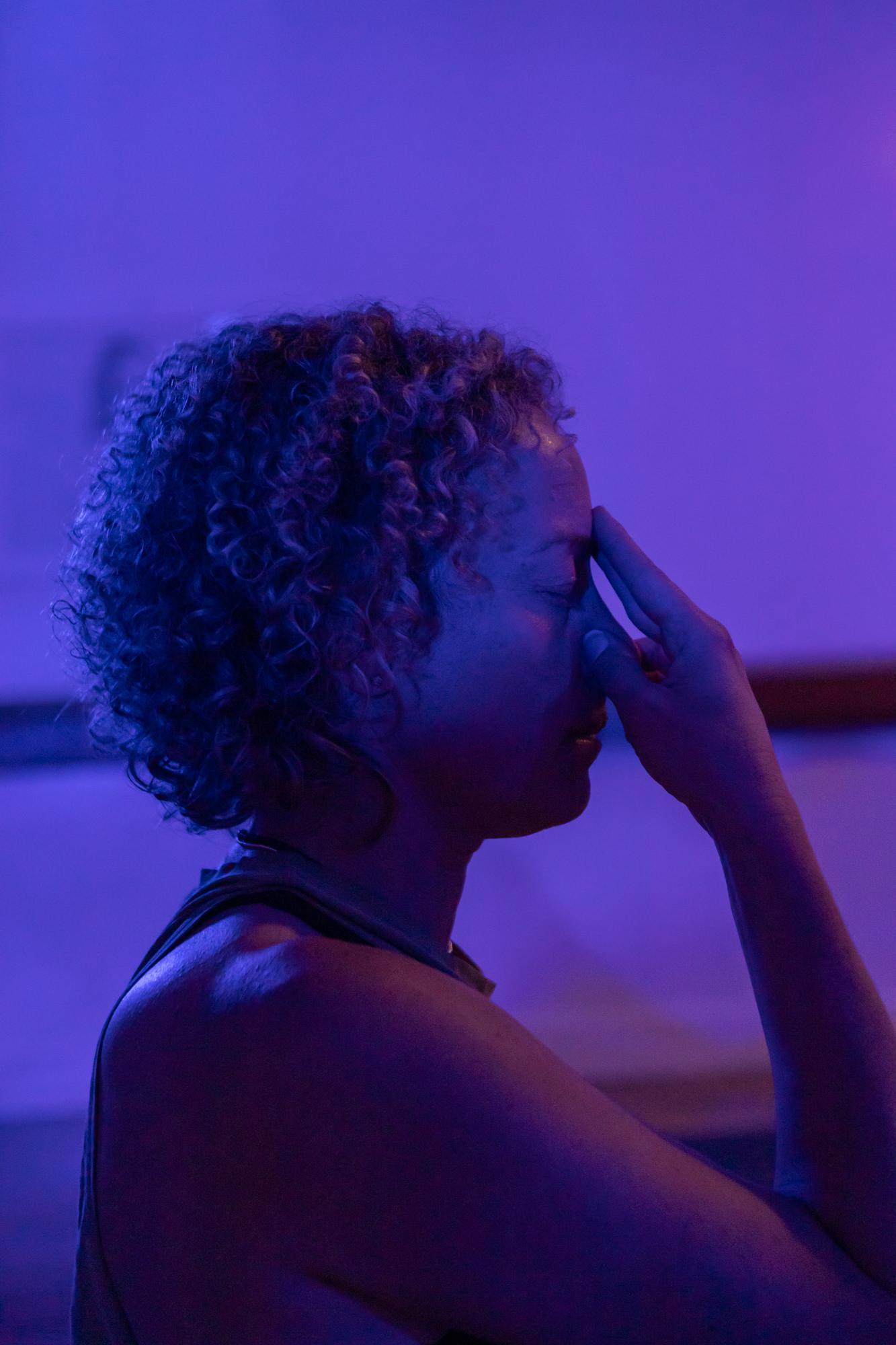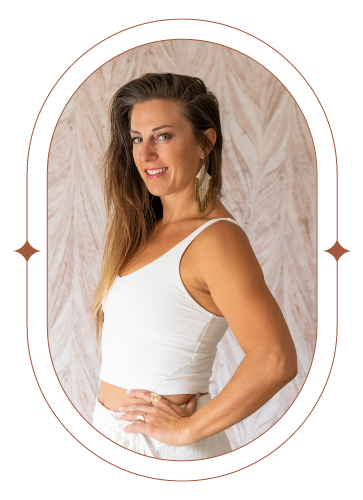Health for the whole system
At our studio, we are invested in the health of your whole self.
That's why we offer practices that support the well-being and growth of
body, mind, and spirit.
The Integrated Approach
We are more than a Yoga + Barre studio. We are a community of beings devoted to living our fullest potential, and that takes more than a good workout.
True evolution of an individual or community is growth that happens on all planes: physical, mental, emotional, social, and spiritual. We support this evolution through
the integrated approach.
We take an integrated approach to our offerings because as humans, we have an integrated system. It is our mission to offer practices that continue to refine this system, in the direction of evolution. We're here to help you cultivate a strong spine and soft heart.
No Contract or Payment Required
Understanding Evolutionary Kriya
Something that makes our studio different is our offering of Evolutionary Kriya.
Kriya is central to the integrated approach, and a powerful practice for promoting growth
across every aspect of our lives.

Kriya is a Sanskrit word that means "action." More specifically, action that liberates. Kriyas are thus techniques that help us to overcome obstacles, heal, and expand into our biggest selves. These techniques incorporate mudra, mantra, movement, sound, and breath to generate a wide variety of experiences. Some kriyas are loud and intense, while others are sweet and subtle. They are all intended to help us access our true potential.
Kriya is different from asana (yoga poses), but very complimentary. Many yoga enthusiasts find that kriya gives their practice a new depth and a new way to understand the workings of their body, mind, and spirit. While kriya can feel foreign in the beginning, these are simple practices intended for everyone.
Where does kriya come from?
Kriyas are practices that come from the Yog-Vedantic tradition of India. Teachers offering kriya at our studio studied in Rishikesh, India, at Sattva Yoga Academy with living master Anand Mehrotra. We acknolwedge that the system of yoga is vast, and there is still much to learn. We are committed to sharing these practices in the West with as much awareness, education, and respect as possible.
Anti-Racism + Wholeness
Everything is connected. Healing ourselves and healing the collective are the same practice.
We talk a lot about "evolving" at 'Ohana. To us, embracing evolution means that we're interested in becoming the highest version of ourselves, and we're not afraid of the change required.
But here's the thing: How can we be the highest version of ourselves while others are suffering and oppressed? And for white-bodied beings, how can we be the highest version of ourselves without addressing the inherent white privelege that benefited us along the way (at the expense of others)? The reality is, we live in a society of systemic racism and oppression which have supported centuries of white supremacy and white dominant culture. We aren't free until everyone is free. And to strive for our highest lives or Yoga (oneness) without anti-racism work... It simply doesn't add up.
At 'Ohana, we are committed to understanding and leveraging our privilege for the sole purpose of reaching our full potential in dismantling these systems.
Anti-Racism Statement From The Founder

My name is Alyssa Manny and I am the Founder of ʻOhana, a predominantly white-centered space that has provided incredible care, love and service since April of 2017. I am a white, able-bodied, cis-gender, pansexual woman who desires to become a true ally of anti-racism work and our BIPOC and LGBTQ++ communities. I am here to acknowledge my privilege, and stand within this privilege to do the real work that must begin from within, in order to break down systematic racism and oppression, and thus provide a safe space for all bodies.
The conversation surrounding race and anti-racism calls to attention our quest for discernment surrounding intention versus actual impact. My intention is to continue to do the work to create an inclusive, diverse, representative and equitable space for all bodies. And as a predominantly white-centered space, I honor the fact that this intention may not always align with our actual impact.
ʻOhana is a white-centered space with inherent biases and internalized supremacy. The reality exists that my intention of supporting an inclusive and representative space may be perceived as white saviorship. I want to clearly communicate that we are not here to merely pretend like we are solving a problem. We are here to do the real work, which includes looking deep within ourselves to uncover the darkness of racism and internalized supremacy. All racism lives within our bodies as unconscious thought, and it is through our own awareness created through movement, breath, self study, conversation, support, challenge and commitment that we will be able to align our intention with its intended impact.
The uncomfortable truth is, through all these years of building an incredible ʻOhana community, I have been acting with a misuse of intellect. I've sidestepped all of these issues in order to maintain my comfortability and complicity within my privilege. My work in becoming an ally within anti-racism has finally begun, and I have the privilege and opportunity to extend this work to our community as a whole.
It’s time to evolve.
Alyssa
The Work Begins...
From my own personal inner work with Dameda Finney of The Empower Black Project, I have uncovered so much. I am here to listen, learn, unlearn and relearn. The goal of becoming allies within anti-racism calls to action addressing all of our operational systems, tech platforms (this website included), business automation tools, hiring protocols, team support, communications and partnerships to understand where our time, energy and money is going, and more importantly, who is receiving. This intentional look at myself and the business as a whole continues to ripple through our entire community as well.
Our team is involved in our re-education of the history of yoga and its origins within Kemet, Egypt as well as continued staff trainings within anti-racism. This energy also extends to our community through providing special workshops hosting conversations on race. The more we are able to hold steadiness and space within this important conversation, the more we can sustain the work to make real and significant change.
What I see at ʻOhana now is a safe space for mostly white capable bodies. I recognize that this hasn’t always been a safe space for people of color, and it’s time to make a change. It is my commitment to be the holder of our intention so that it flows and aligns with real and significant impact. I’m going to show up every single day with this energy in my heart.
Anti-Racism Work: Where To Start?
As a community, we continue to strive toward allyship for the BIPOC community. So, wondering where to start? This work requires a re-education of history and the privileges we hold as white people. We recommend these resources to get started.
The Conversation Continues
We're all about evolution. But we also believe in doing it together. Join us on the ʻOhana online community app on Discord to get more resources and participate in our ongoing conversation on race.
Cultural Appropriation
Ruben Campos writes via The Fullest “Non-Indigenous people utilizing words like aloha, mahalo, or ʻohana is very much part of the long history of colonization. Like any non-Western concept signifying deep cultural values, Hawaiian words can be isolated and worn as some kind of accessory to complete our supposed world-wise identity.”
All of this conversation calls to attention our quest for discernment surrounding intention versus impact. When developing the business back in 2017 and opening the studio, our intention was to create a community that would be received as a tight knit family. Read more about this intention here. Now we understand that this original intention no longer aligns with the impact.
Campos continues, “cross-cultural learning is always tied to power and inequality. So while no cultural system is more natural, legitimate or important than any other, global systems of power have built hierarchies to erase and marginalize particular peoples and their culture. These same systems privilege the white dominant culture, allowing access to appropriate cultures piecemeal, even fostering our sense of ownership over other cultures.”
We have work to do in this area, and we are committed to addressing our name, identity, ethos, mission and communication in order to align its intention and impact.
Land Acknowledgement
Ute, Cheyenne, Arapaho, Sioux Nations and bands
As a community, it is important to recognize our ancestral land where the studio resides, the fact that Indigenous people were massacred and forcibly removed from their sacred lands, and that sovereignty and reconciliation has never been granted. Our hearts honor the fact that we experience tremendous white privilege in our experience of living, working, moving and breathing on these lands, and we extend tremendous gratitude to the Indigenous people of generations past and generations yet to come.
The area of northwest Denver and the Berkeley neighborhood is located within a larger area inhabited by indigenous peoples for tens of thousands of years. Here over the millennia, older generations shared and preserved their histories, cultures, and traditions.
The Berkeley neighborhood was the traditional ancestral territory for Native American groups of the Plains, including the Arapaho, Cheyenne, Apache, Kiowa, Comanche, Utes, Sioux and other Nations and bands.
By the early 1880s, most of the Native Americans were massacred or forcibly removed and confined by the US government to reservations in Colorado and other states as a result of continued pressure from growing numbers of European-Americans Whites moving into the region.





